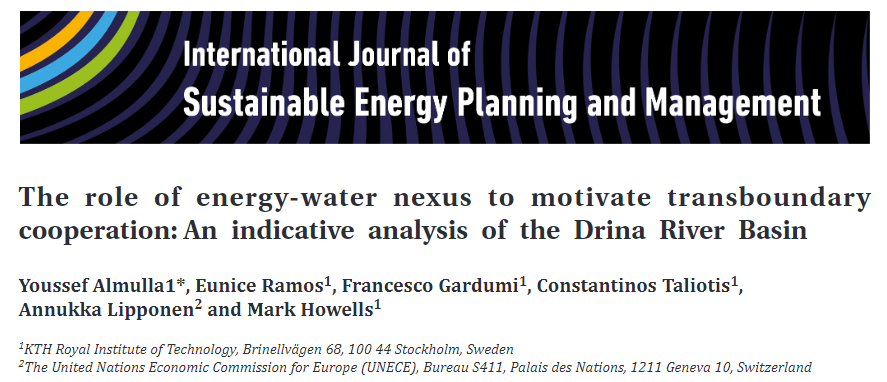Recent publication

The role of energy-water nexus to motivate transboundary cooperation
Hydropower, a low-carbon electricity generation technology, is a key energy source, not only for achieving the Sustainable Development Goals but also to motivate transboundary cooperation between countries. A recent study , led by KTH-dESA researcher , explores solutions that consider both energy and water to motivate transboundary cooperation in the operation of hydropower plants in the Drina River Basin, located in South-East Europe. The study was conducted using the Open Source energy Modeling System (OSeMOSYS) to develop a multi-country model which included a simplified hydrological system representation of the cascade of hydropower plants in the Drina River Basin. Various modes of operation were examined to estimate the benefits of enhanced cooperation between stakeholders in the operation of the hydropower plants. Furthermore, the study provides insights on other aspects such as electricity trade and energy efficiency. The study was developed under the ongoing collaboration between KTH-dESA and the United Nation Economic Commission of Europe (UNECE) . The outcomes of this study were used to inform the nexus dialogue between the Drina River Basin countries under the umbrella of the UN ‘ water convention ’. The complete study of the nexus of the Drina River basin can be accessed here .

